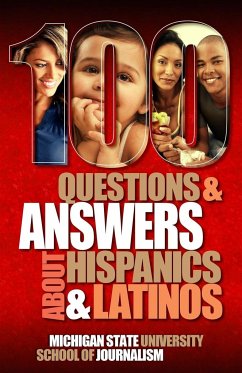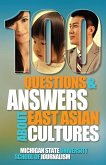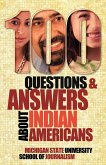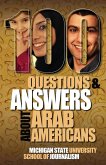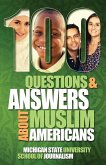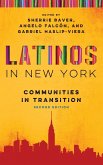"One Hundred Questions and Answers About Hispanics and Latinos" is part of the Michigan State University School of Journalism series in cultural competence. It focuses on the diversity of the largest ethnic group in the United States. This guide has sections on Hispanic and Latino identity, geography, language, religion, social norms, politics, immigration and deportation, education, work, money, families, culture, health and food. It explains terms such as Chicano, Tejano and Texano, Boricua and deals with deportation and immigration. The guide is intended for people in business, schools, places of worship, government, medicine, law enforcement, human resources and journalism-anywhere it is important to know more about communities. We hope this guide works for individuals who just have questions about the people around them. We began by asking Hispanics and Latinos about myths, misconceptions and biases that they run into and wish others knew more about. Questions include: What are the definitions of Hispanic and Latino? How did Hispanic and Latino become official terms? Are there U.S. regional or state preferences for Hispanic or Latino? So people can be one and not the other? What does "Latina" mean? What do "Chicano" and "Chicana" mean? What is the definition of Chican@? What does Tejano mean? What does Boricua mean? What race are Latinos and Hispanics? How many Hispanic people live in the United States? What are their places of origin? Which states have the largest Hispanic populations? Is Puerto Rico a country, colony or commonwealth? Why is Puerto Rico a territory and not a state or a country? Do people living in Puerto Rico vote in U.S. elections? Do Puerto Ricans in Puerto Rico pay U.S. taxes? What is Hispaniola? How prevalent is bilingualism? What is Spanglish? What is the English-only movement? Are Hispanics more religious than other Americans? Are U.S. Hispanics mostly Catholic? Is Pope Francis the first Latin American pope? Are Latinos generally more emotional or expressive than other Americans? Are Latinos traditionally modest about their accomplishments? How do Hispanics align politically? What are top political concerns for Hispanics today? How much weight does the Hispanic vote carry in U.S elections? What is turnout like among Hispanics voters? Are Hispanics represented proportionately in government? Who are some nationally prominent Hispanic politicians? What draws Latinos to the United States? What are the "waves" of Latino immigration to the United States? Are most Latinos in the United States today immigrants? Do most Latino immigrants come to the United States legally? What is the "DREAM Act?" What is DACA? What is the "Drop the I-Word" campaign? What is a green card? What are the difference between permanent residency and citizenship? What are remittances? Are Latinos profiled? What is the average educational level of Hispanics? Do Hispanics come to the United States for schooling? Which colleges or universities are more welcoming to Hispanics?
Hinweis: Dieser Artikel kann nur an eine deutsche Lieferadresse ausgeliefert werden.
Hinweis: Dieser Artikel kann nur an eine deutsche Lieferadresse ausgeliefert werden.

